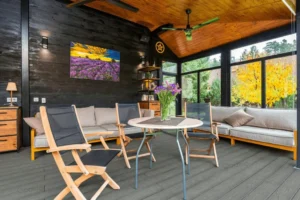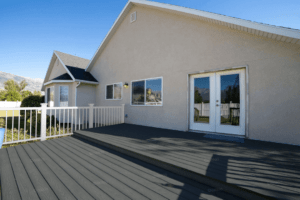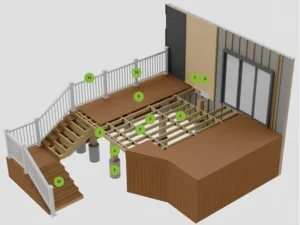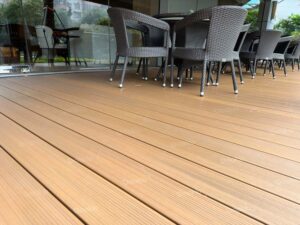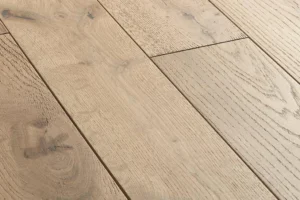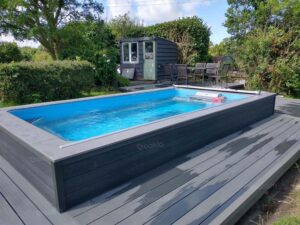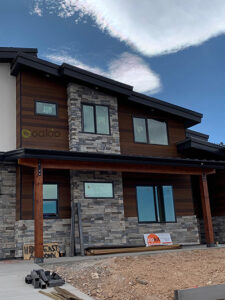How Much Does a Deck Remodel Cost?
In recent years, more and more homeowners have chosen to remodel their decks to enhance the quality of outdoor living. As people place increasing importance on outdoor leisure spaces, the deck has evolved from a simple platform into a vital area for family gatherings, relaxation, and entertainment. Whether it’s to expand functional space, increase home value, or simply improve aesthetics, deck remodel has become a worthwhile investment. However, costs can vary widely depending on materials, design, and labor, making it crucial to understand the budget beforehand.
With outdoor living spaces growing in popularity, the demand for deck remodel continues to rise. Yet how to plan a reasonable budget remains a challenge for many homeowners. Different material choices, structural changes, and added features can significantly affect the final cost. This article offers a detailed analysis of average deck remodel costs in 2025 and breaks down the key factors that influence pricing, helping you create your ideal outdoor space within budget.
What Is Deck Remodel?
Deck remodel is different from simple repairs or entirely new construction. It typically involves large-scale renovations and upgrades to an existing deck. Common remodels include resurfacing—such as replacing decking boards, railings, and repainting or staining—all of which can greatly enhance the deck’s appearance and durability. Layout changes are also frequently needed, like expanding the area or altering the shape to suit new usage needs.
Structural upgrades are often the most complex part of the project, such as reinforcing the frame or replacing rotted support beams. Though these tasks are more costly, they ensure the long-term safety of the deck. In addition, many homeowners choose to add functional features like lighting systems, stairs, built-in seating, or shade structures, all of which significantly improve the deck’s usability and comfort.
It’s important to note that minor fixes—like replacing a few damaged boards—are considered maintenance, while a complete teardown and rebuild would be categorized as new construction. Remodeling falls between the two: part of the original structure is preserved while substantial upgrades are made.
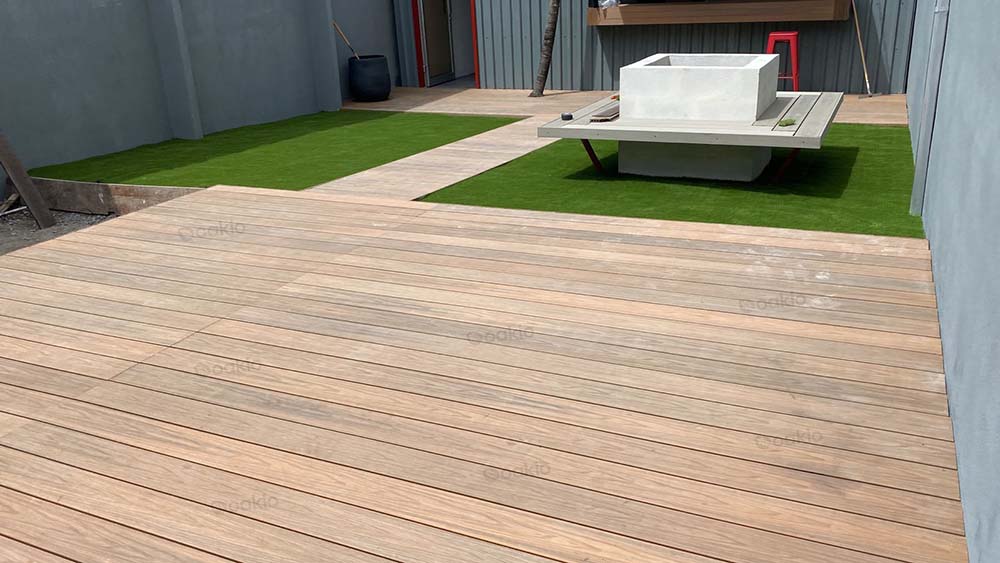
Average Deck Remodel Costs in 2025
Deck remodel costs vary significantly based on materials, size, and design complexity. Based on 2025 market trends, we can divide remodels into three levels: low-end, mid-range, and high-end. Low-end remodels typically use basic materials and perform only essential upgrades, costing around $10 to $20 per square foot. For a 200-square-foot deck, that amounts to approximately $2,000 to $4,000 in total.
Mid-range remodels use higher-quality materials and may incorporate some functional upgrades, costing between $20 and $40 per square foot. The total cost for a similarly sized deck would be around $4,000 to $8,000. High-end remodels use premium materials and may include custom features such as luxury railing systems or built-in lighting, with costs reaching $40 to $100 or more per square foot. A 200-square-foot deck could therefore cost between $8,000 and over $20,000.
| Remodel Tier | Description | Cost per Sq Ft | Estimated Cost for 200 Sq Ft |
| Low-End Remodel | Basic materials, essential upgrades | $10 – $20 | $2,000 – $4,000 |
| Mid-Range Remodel | Better materials, added functional features | $20 – $40 | $4,000 – $8,000 |
| High-End Remodel | Premium materials, custom features (e.g., lighting, railings) | $40 – $100+ | $8,000 – $20,000+ |
Material selection has a major impact on cost. Pressure-treated wood is the most economical option, typically priced at $10 to $25 per square foot, though it requires regular maintenance. Cedar is slightly more expensive at $20 to $35 per square foot and is naturally resistant to rot. Composite materials range from $30 to $60 per square foot. Though they come with a higher upfront cost, they require little to no maintenance. PVC is the most expensive, at $40 to $80 per square foot, but offers superior waterproofing and insect resistance. For example, remodeling a 200-square-foot deck with composite materials may cost between $6,000 and $12,000.
| Material | Cost per Sq Ft | Notes |
| Pressure-treated wood | $10 – $25 | Most affordable, but requires regular maintenance |
| Cedar | $20 – $35 | Naturally rot-resistant, slightly more expensive |
| Composite decking | $30 – $60 | Higher upfront cost, low maintenance |
| PVC | $40 – $80 | Best waterproofing and pest resistance, most expensive |
| Example | — | 200 sq ft composite deck: $6,000 – $12,000 |
Key Factors Influencing Deck Remodel Costs
Deck size and layout are fundamental cost factors. The larger the area, the more materials and labor are required, leading to higher costs. Additionally, complex designs such as multi-level structures, curved edges, or irregular shapes increase the difficulty and duration of construction, driving up total expenses. A simple rectangular deck may cost 30% to 50% less to remodel than one with multiple corners and levels.
Material selection affects not only the initial cost but also long-term maintenance expenses. While wood is less expensive upfront, it requires regular sealing and upkeep, which may cancel out its cost advantage over time. Composite materials, although costlier at the start, need virtually no maintenance and can last over 25 years. PVC provides the best waterproofing performance and is ideal for humid climates, though it is the most expensive option.
Labor costs are another key variable. Professional contractors typically charge between $50 and $100 per hour, depending on regional labor rates. While DIY may save money on labor, lack of experience and tools can result in poor craftsmanship or even safety issues. Structural changes usually add significantly to the budget. For instance, replacing rotted beams or reinforcing the foundation may cost $1,000 to $5,000. Strengthening the structure to support a hot tub may require $2,000 to $8,000.
Hidden Costs Often Overlooked
Many homeowners fail to account for hidden costs when budgeting. Removing the old deck and hauling away debris can cost between $200 and $1,000, depending on the deck’s size and local disposal fees. Weather-related delays—especially during rainy seasons or extreme conditions—can extend the project timeline and increase labor charges.
Unexpected structural issues, such as foundation damage or insect infestation, may surface during construction and require an extra $1,000 to $5,000 for repairs. In remote areas, delivery fees for materials can add another $200 to $800. Moreover, if the remodel includes electrical wiring or plumbing, you’ll need to budget for licensed professionals, which could easily exceed your initial cost estimates.
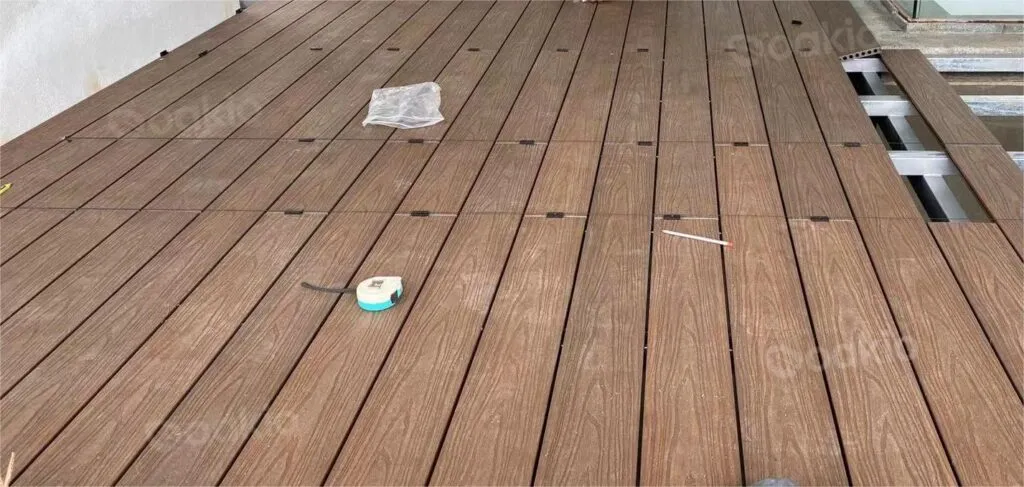
Practical Tips for Saving on a Remodel
To achieve the best results on a limited budget, consider a few practical strategies. Start by prioritizing functional upgrades such as reinforcing the structure or improving drainage—these may not be visually striking but significantly enhance the deck’s safety and usability. Obtaining and comparing multiple quotes is also essential, as contractor pricing may vary by 20% to 30%.
Opting for a renovation rather than a full rebuild is another effective cost-saving method. If the existing structure is still sound, simply replacing the surface boards and railings can give your deck a fresh look at only 50% to 70% of the cost of building a new one. Scheduling your project during the off-season—like winter or early spring—may earn you a 5% to 15% discount, as contractors are typically less busy during these periods.
Is a Deck Remodel Worth the Investment?
From a return-on-investment perspective, a quality deck remodel can offer a 70% to 80% return. This means a $10,000 remodel could potentially boost your home’s value by $7,000 to $8,000. Beyond financial benefits, a remodeled deck can significantly improve your lifestyle by providing more outdoor space for family activities and relaxation.
In the long run, choosing low-maintenance materials like composite may be a more economical option despite the higher upfront cost. Statistics show that over 20 years, the maintenance cost of a wood deck can reach up to 50% of its original price, while composite decking typically requires no additional investment. Therefore, for homeowners planning to stay long term, high-end materials may offer better overall value.
Conclusion
Deck remodeling is a complex project influenced by many factors, and careful budgeting is essential to ensuring a smooth process. By understanding the characteristics of different materials, the composition of labor costs, and potential extra expenses, homeowners can make more informed decisions. It’s recommended to consult professional contractors before starting, get detailed quotes, and reserve an additional 10% to 20% of the budget as a contingency fund to handle any unexpected issues that may arise.
Trending Reading
What Are the Differences Between the WPC Board and PVC Board?
[2025 Update] How Long Does WPC Decking Last?
